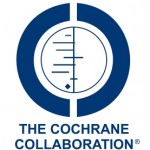
The prevalence of persistent dry mouth varies but a conservative estimates is that about 20% in the general population, with increased prevalence in women (up to 30%) and in the elderly (up to 50%). The aim of this Cochrane review was to determine which topical treatments for dry mouth are effective in reducing this symptom.
Detailed searches of a range of databases ( Cochrane Oral Health Group Trials Register, The Cochrane Central Register of Controlled Trials (CENTRAL) MEDLINE , EMBASE, CINAHL, AMED, CANCERLIT) were conducted for randomised controlled trials of topical interventions such as lozenges, sprays, mouthrinses, gels, oils, chewing gum or toothpastes for the treatment of dry mouth symptoms. Interventions were classified into two broad categories saliva stimulants and saliva substitutes. Two or more review authors independently carried out data extraction and assessed risk of bias. Trial authors were contacted for additional information as required.
Thirty-six randomised controlled trials (1597 participants) were included.
Two trials compared saliva stimulants to placebo, nine trials compared saliva substitutes to placebo, five trials compared saliva stimulants directly with saliva substitutes, 18 trials directly compared two or more saliva substitutes, and two trials directly compared two or more saliva stimulants. Only one trial was at low risk of bias and 17 were at high risk of bias. Due to the range of interventions, comparisons and outcome measures in the trials,meta-analysis was possible for only a few comparisons.
- Oxygenated glycerol triester (OGT) saliva substitute spray shows evidence of effectiveness compared to an electrolyte spray (standardised mean difference (SMD) 0.77, 95% confidence interval (CI) 0.38 to 1.15) which corresponds to approximately a mean difference of 2 points on a 10-point visual analogue scale (VAS) for mouth dryness.
- Both integrated mouthcare systems (toothpaste + gel + mouthwash) and oral reservoir devices show promising results but there is insufficient evidence at present to recommend their use.
- Although chewing gum is associated with increased saliva production in the majority of those with residual capacity, there is no evidence that gum is more or less effective than saliva substitutes.
The authors concluded:-
There is no strong evidence from this review that any topical therapy is effective for relieving the symptom of dry mouth. OGT spray is more effective than an aqueous electrolyte spray (SMD 0.77, 95% CI 0.38 to 1.15) which is approximately equivalent to a mean difference of 2 points on a 10-point VAS scale for mouth dryness.Chewing gums appear to increase saliva production in those with residual secretory capacity and may be preferred by patients, but there is no evidence that gum is better or worse than saliva substitutes.Integrated mouthcare systems and oral reservoir devices may be helpful but further research is required to confirm this.
Well designed, adequately powered randomised controlled trials of topical interventions for dry mouth, which are designed and reported according to CONSORT guidelines, are required to provide evidence to guide clinical care. For many people the symptom of dry mouth is a chronic problem and trials should evaluate whether treatments are palatable, effective in reducing xerostomia, as well as the long-term effects of treatments on quality of life of those with chronic dry mouth symptoms.
Furness S,Worthington HV, Bryan G, Birchenough S, McMillan R. Interventions for the management of dry mouth: topical therapies. Cochrane Database of Systematic Reviews 2011, Issue 12. Art. No.: CD008934. DOI: 10.1002/14651858.CD008934.pub2.

[…] […]